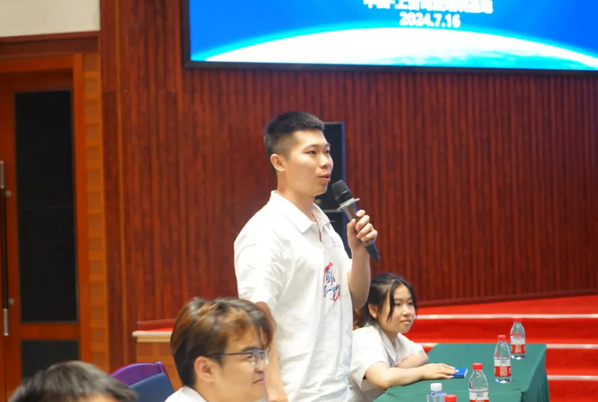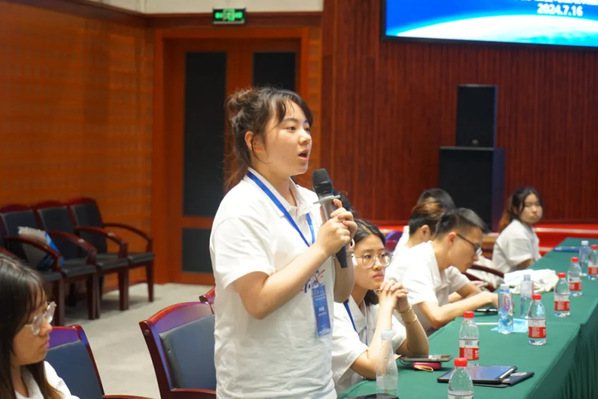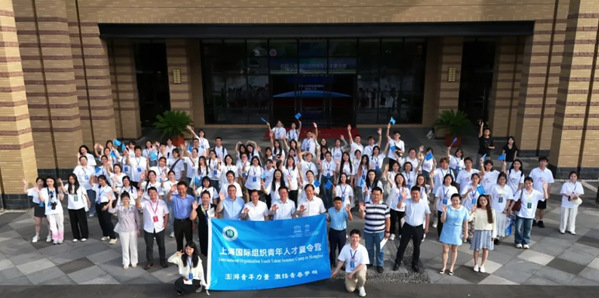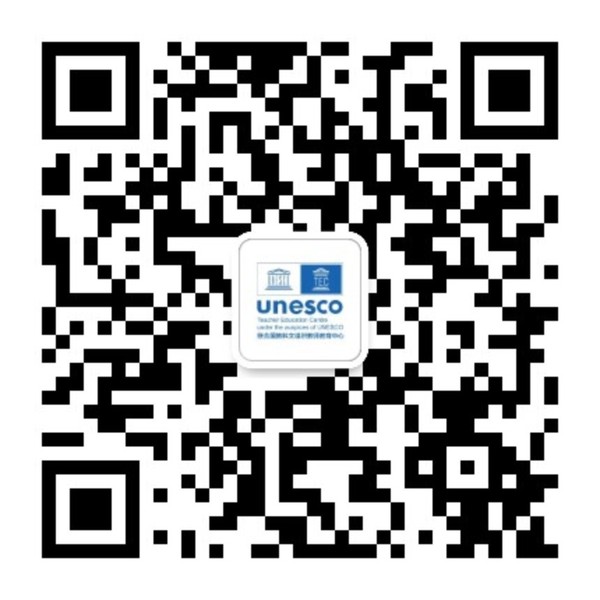On the morning of July 16, 2024, the Shanghai International Organization Youth Talent Summer Camp continued with three Influential Voices sessions at Shicheng Lecture Hall on the 2nd floor of the UNESCO Teacher Education Centre (TEC), hosted by Ms. Yan Wenle. The camp invited He Changchui, former Deputy Director-General of the Food and Agriculture Organization (FAO); Zhang Shuanggu, former Minister-Counsellor and Deputy Permanent Representative of China to UNESCO; and Xue Yuxue, former Director of the UN Development Programme (UNDP) Country Offices in Afghanistan and Indonesia, to share in-depth insights and valuable experiences focusing on Chinese cultural communication, diplomatic career, and cultivation of globally competent talents, respectively.
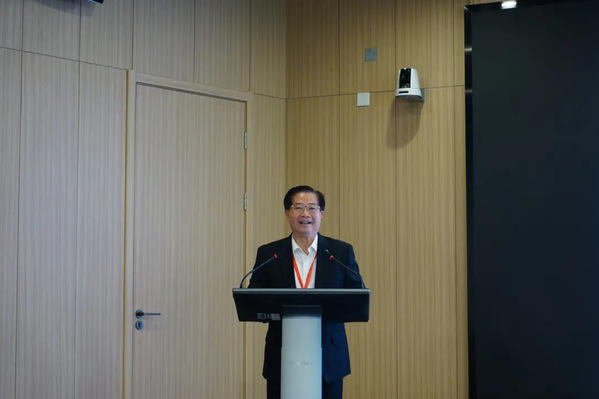
Lecture by Professor He Changchui
First, Professor He Changchui, former Deputy Director-General of FAO, shared his experience in international organizations under the theme How to Enhance the Influence of Chinese Culture in Global Governance. He noted that in current global governance, member states mainly compete around three aspects: discourse power, agenda-setting, and position proposals. To enhance the influence of Chinese culture in global governance, China can make efforts in multiple dimensions, such as cultivating global governance talents through the 4+5 Competency Framework on the basis of understanding institutional characteristics and familiarizing with regulatory procedures, and firmly promoting the dissemination of Chinese concepts on the international stage.
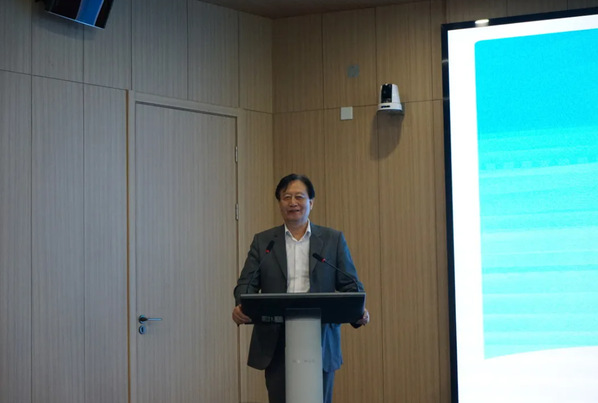
Lecture by Professor Zhang Shuanggu
Next, Professor Zhang Shuanggu, former Minister-Counsellor and Deputy Permanent Representative of China to UNESCO, showcased the professional qualities and work characteristics of diplomats by sharing his three overseas assignments. His first overseas experience gave him the basic understanding that nothing in diplomacy is trivial and allowed him to accumulate experience in making more friends, making friends widely, and making friends deeply. His second assignment in Australia and third at UNESCO deepened his understanding that bilateral diplomacy is a bridge, and multilateral diplomacy is a stage. Drawing on his rich diplomatic experience, Professor Zhang advised students to start from the little things and the present, constantly demanding themselves to meet the qualities of a diplomat.
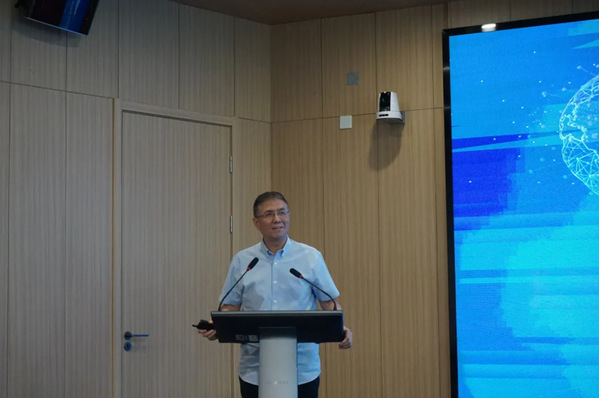
Lecture by Professor Xue Yuxue
Finally, Professor Xue Yuxue, former Director of UNDP Country Offices in Afghanistan and Indonesia, delivered a talk on Empowering Youth Development and Contributing Chinese Strength, addressing the cultivation of young globally competent talents from a global governance perspective. She emphasized that training global competence is not about quantity or employment, but about truly cultivating Chinese youth who possess basic capabilities to make practical contributions to global governance. Professor Xue argued that in the context of new challenges in global governance amid escalating changes unseen in a century, it is necessary to build and improve a talent model for global competence with four core connotations: global thinking, international awareness, cross-cultural behavior, and the ability to analyze and solve global issues. This model aims to cultivate young talents with critical thinking, creativity, and a commitment to continuous learning.
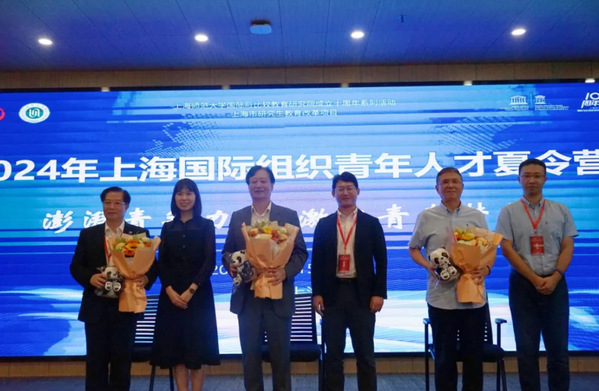
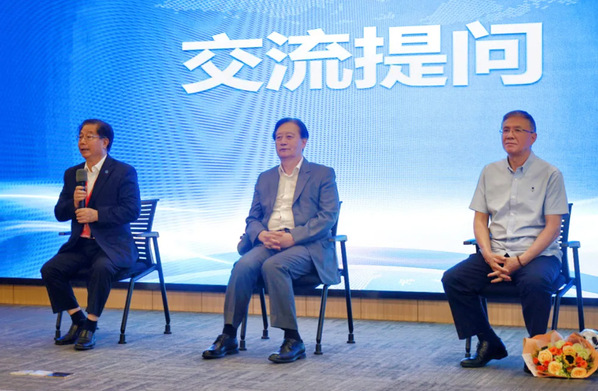
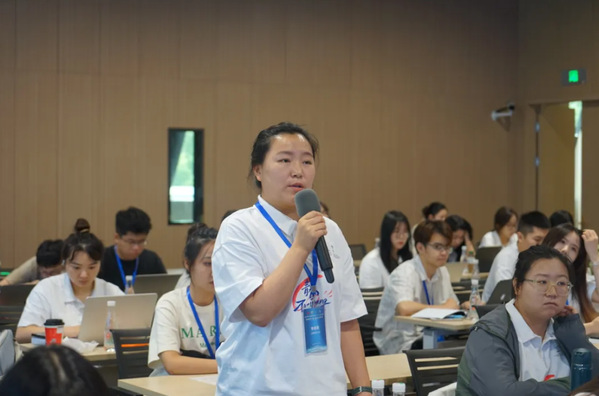
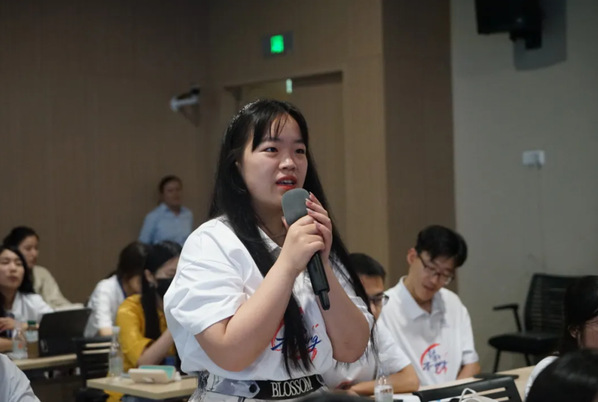
Students’ Questions
After the three themed lectures, students actively asked questions based on the professors’ sharing and their own professional interests. The three professors patiently answered questions focusing on the inclusiveness of Chinese culture, basic qualities of diplomats, and current hot news. They expressed appreciation for the students’ career aspirations and offered sincere encouragement and blessings.
In the afternoon, experts and campers of the Shanghai International Organization Youth Talent Summer Camp embarked on an exploration trip, visiting the China-Shanghai Cooperation Organization (SCO) International Judicial Exchange and Cooperation Base (hereinafter referred to as the Base). The visit was warmly received by leaders and experts including Luo Ligang, Vice President of Shanghai University of Political Science and Law and Executive Deputy Director of the Base Office; Rong Daofu, Deputy Director of the University Office of Shanghai University of Political Science and Law and Deputy Secretary of the Base Party Committee; Zhang Shaoying, Deputy Director of the Base Office; Shen Xiaochen, Head of the Teaching Department of the Base Office; Sun Liuhua, Head of Training Programs of the Base Office; and Fan Hanqi, Teacher of the Administrative Department of the Base Office.
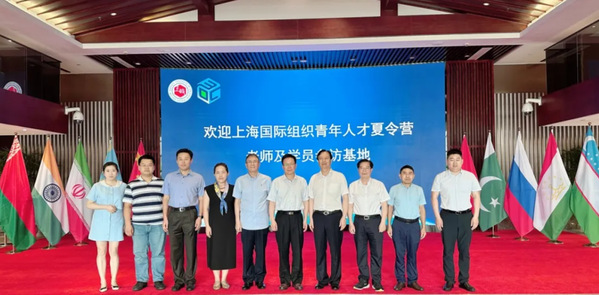
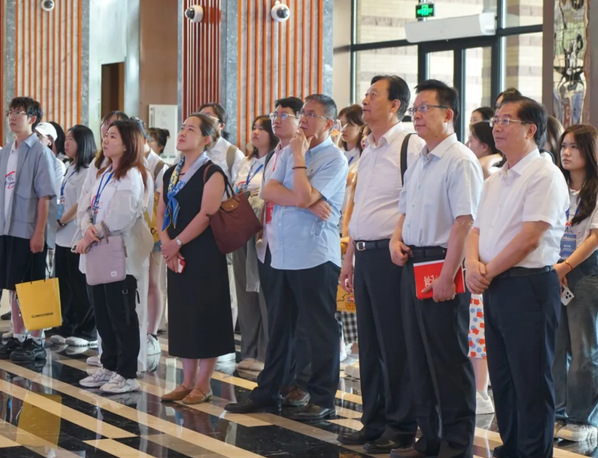
Rong Daofu, Deputy Director of the University Office of Shanghai University of Political Science and Law and Deputy Secretary of the Base Party Committee, hosted the exchange activity. Luo Ligang, Vice President of Shanghai University of Political Science and Law and Executive Deputy Director of the Base Office, delivered a warm welcome speech. He reviewed the Base’s historical origins, strategic goals, and mission vision, expressing hope that this summer camp would help more talented young students step onto the international stage and inject new blood and vitality into international organizations.
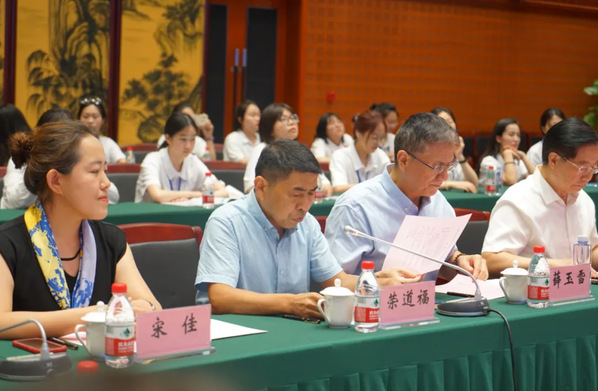
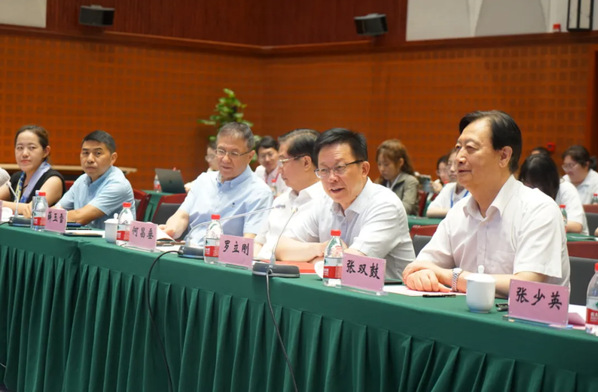
Subsequently, Zhang Shaoying, Deputy Director of the Base Office, elaborated on the Base’s three core functions and the Think Tank+ strategic model. Shen Xiaochen, Head of the Teaching Department of the Base Office, specifically introduced the Shanghe Internship Program, while Sun Liuhua, Head of Training Programs, provided an in-depth overview of the Base’s foreign police training. Later, Associate Professor Song Jia, Secretary of the Party Branch of the Institute of International and Comparative Education at Shanghai Normal University, delivered a speech, thanking the Base on behalf of the summer camp organizers for their warm reception and strong support, and exchanging souvenirs with the Base.
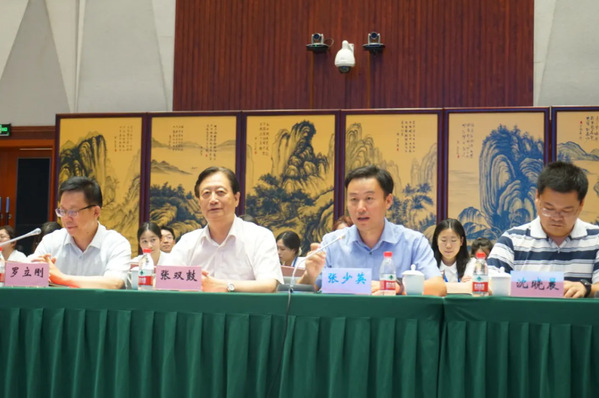
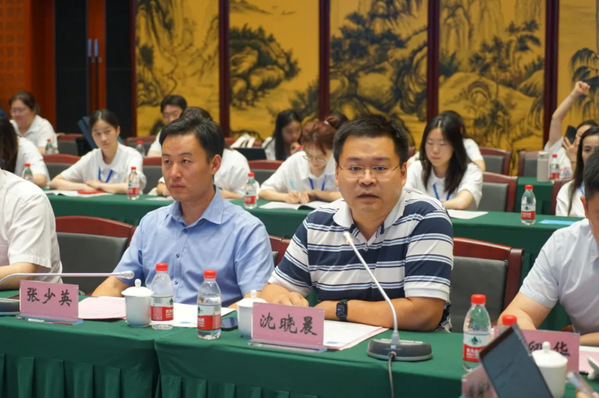
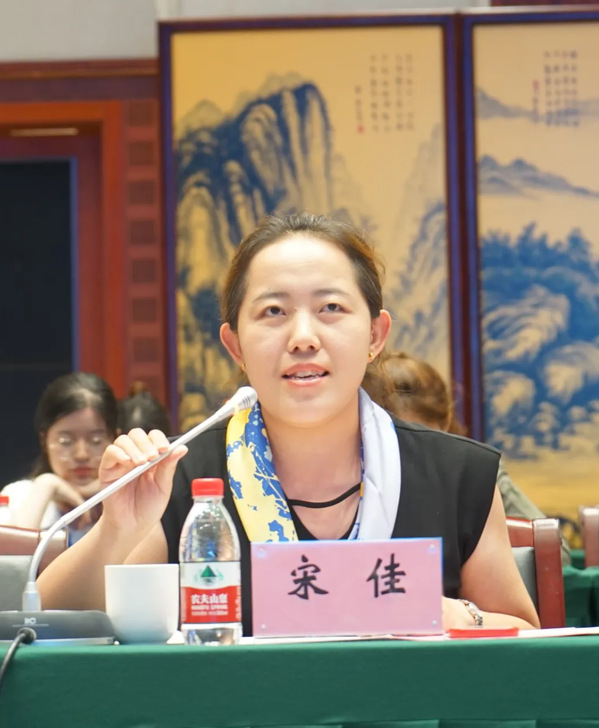
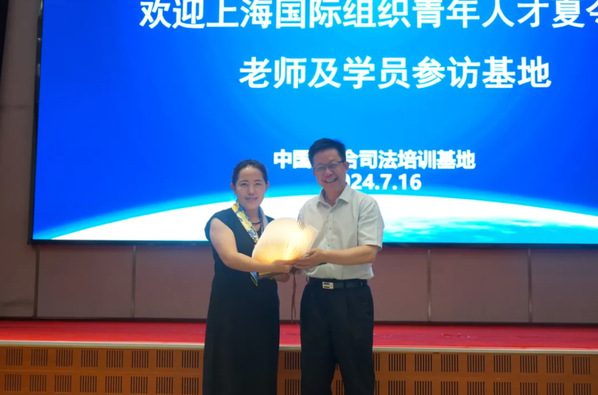
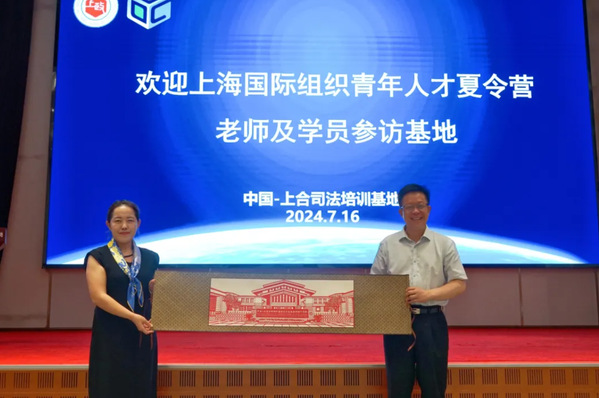
Finally, campers had a lively and in-depth exchange with the Base’s leaders, experts, and teachers, jointly exploring potential future cooperation directions. This visit not only deepened campers’ understanding of the China-SCO International Judicial Exchange and Cooperation Base but also laid a solid foundation for promoting exchanges and cooperation among international youth.
